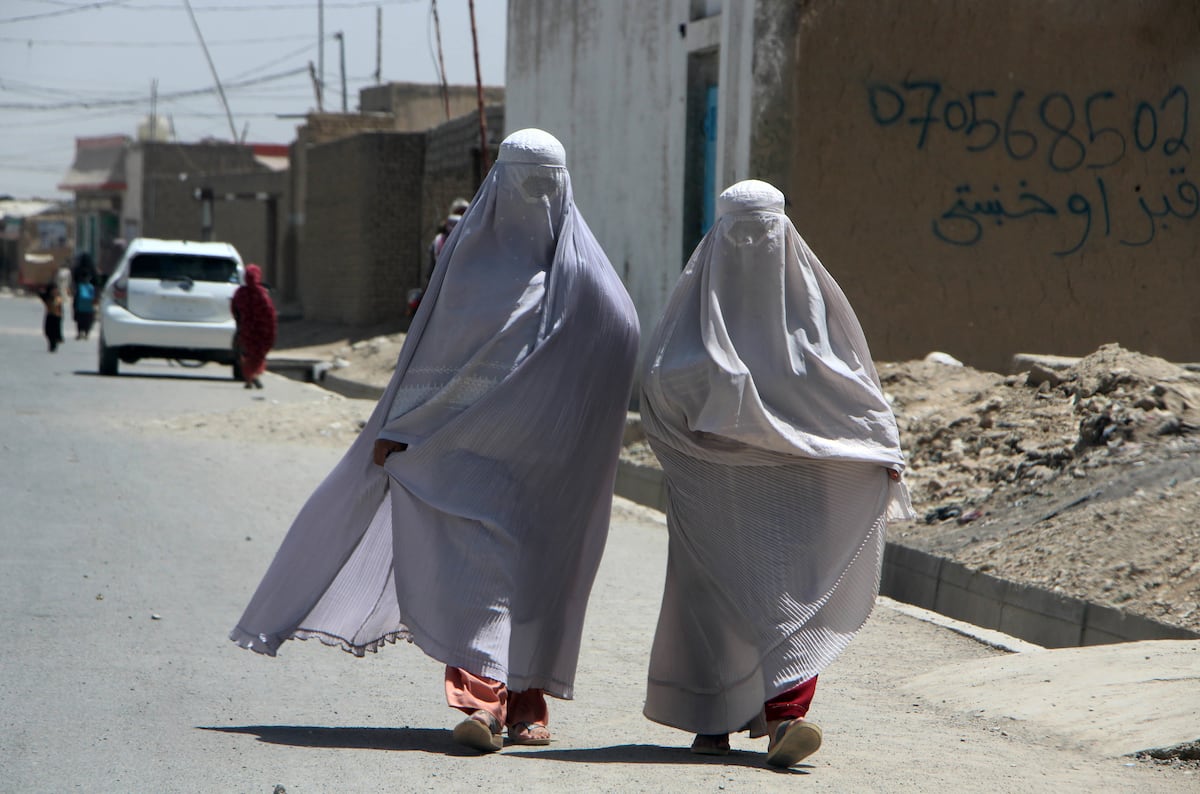Taliban bans women’s voices in public places in Afghanistan | International

The Taliban government in Afghanistan has approved a morality law that tightens repression against women. The rule includes measures such as barring their voices from being heard in public places and their faces from being seen on the street, which must be covered under a mandatory full-face veil. This is the first formal promulgation of laws “on vices and virtues” since the hardline group took power by force in August 2021.
The document, which has more than 100 pages with 35 articles, was promulgated and officially published this Wednesday after being approved by the supreme spiritual leader, Haibatullah Akhundzada. The measures, for the most part, affect women: it is established that they must cover their face and body to avoid “temptation”, so “they should not wear flashy, tight clothing or clothing that reveals the shape of their body”. They are also prohibited from using cosmetics or perfumes, with the ultimate goal of preventing them from imitating “the dress styles of non-Muslim women”.
One of the most severe measures is to avoid women’s voices in public places, including activities such as singing, reciting or speaking into a microphone. They are even forbidden from making eye contact with men who are not their relatives. “The implementation of Sharia (Islamic law) and hijab is our red line. We cannot negotiate with anyone on these matters,” said Mohammad Khalid Hanafi, Minister of Virtue and Vice, according to Afghan channel Tolo News.
The United Nations believes that since 2021, when the Taliban came to power after the withdrawal of Western troops and suspended the constitution, the situation of women in Afghanistan has been “Apartheid Gender”, in the words of Richard Bennett, the Special Rapporteur on that country. The expert then said that the situation of Afghan women is “the worst” for women in the world.
There have been a number of clothing restrictions in the past three years, but this law is the first legal basis for enforcing them. The rules also include restrictions for men: they cannot wear ties, nor cut their beards shorter than the length of a fist. They cannot comb their hair either. With regard to their role in public spaces, men cannot look at, let alone address, women they are not in a relationship with. Bus drivers must refuse to transport female passengers who are not accompanied by a man. In addition, the new law requires the media to comply with Sharia law, which prohibits the publication of images containing living beings.
The Ministry of Justice states that sanctions for any of these violations include “counseling, warnings of divine punishment, verbal threats, confiscation of property, detention in public prisons for one hour to three days, and any other punishment deemed appropriate.” If these measures do not correct a person’s behavior, they will be referred to the courts for further measures.
To know what happens outside is to understand what will happen inside, don’t miss anything.
keep reading
According to the Taliban, the rule has been made according to Islamic Sharia. Authority In fact They reported last week that more than 13,000 people were arrested last year for violating morality laws, though they did not give details of the alleged crimes or the gender of those detained. Half of these detentions lasted less than 24 hours. According to the Ministry of Justice, this is the seventh regulation approved by the Islamic Emirate, with others relating to property, financial services and the prevention of begging.
Follow all international updates Facebook And Xor in Our weekly newsletter,
(TagstoTranslate)Afghanistan
